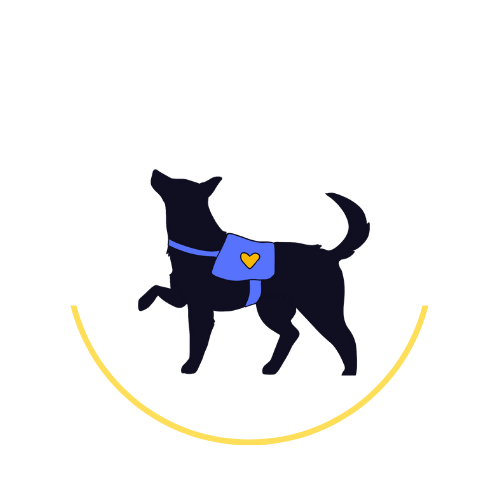Marking and Intact Male Service Dogs: What to Know and How to Prevent It
If you are raising a male service dog or service dog in training and choosing to keep him intact, you might be concerned about the risk of marking. This is a common question, especially for adolescent males who are still learning how to behave in public spaces. The good news is that marking is not guaranteed and it can be prevented. If it does happen, it can be unlearned through the right training approach.
Why Some Service Dogs Stay Intact
There are several well-supported reasons to leave a service dog intact for some or all of his working life.
Some people wait to neuter until the dog's growth plates have fully closed. This helps protect joint development and long-term structural health. Others may be showing their dog in conformation and must leave the dog intact to meet breed ring requirements.
In many breeds, especially large or working dogs, research shows that the age at which a dog is altered may affect their health. Some studies suggest that early neutering increases the risk of orthopedic issues or certain cancers. Because of this, breed-specific guidelines often recommend waiting until 18 to 24 months or longer. Some owners even choose not to alter at all.
Choosing to leave a dog intact is not irresponsible. It is a choice often made in consultation with veterinarians, breeders, and trainers based on the dog's individual needs.
Marking Is a Potty Training Issue
Marking is not about dominance or defiance. It is not a personality flaw. Marking is a potty behavior. It usually starts when a dog smells urine in a public place and learns that this is an appropriate spot to go. Pet-friendly stores like Lowe’s, PetSmart, and Home Depot often have residual smells from other dogs. These environments make it easy for a service dog in training to make a mistake.
If a dog learns to mark indoors and is not redirected, the behavior can quickly become a habit.
What to Do If Your Dog Is Sniffing or Marking Indoors
If your service dog in training has started sniffing more or recently marked in a public place, here is what to do next:
Ask your dog to potty outside more than once
Before entering any store, especially pet-friendly places, give your dog several chances to eliminate. Do not assume one quick potty break is enough.
Interrupt sniffing before it becomes marking
If your dog starts sniffing baseboards, corners, or poles inside a store, calmly take them back outside and ask them to pee. Once they have eliminated, you can return to training.
Do not allow free sniffing during public access
Teach your dog that public access means working. Keep them engaged with you and focused. Ask for a heel, use food rewards, or offer quiet praise. Save sniffing time for outdoor enrichment walks.
Do not correct your dog for marking
Correcting a dog for marking may backfire. The dog may not understand what they are being corrected for. They may also begin to associate punishment with public access, with you, or with going potty in general. This can lead to anxiety and inconsistent behavior.
Stop public access temporarily if needed
If your dog marks indoors or keeps trying to do so, it is a sign that they are not yet ready for public training. That is okay. Take a step back. Focus on clean behavior in training centers, your home, or outdoor pet friendly spaces. Return to public indoor environments once your dog is reliably potty trained in easier places.
Ensure your dog’s needs are met
If your dog is never given an outlet to sniff pee-mail or mark outdoors when allowed, they may begin to “steal” chances to mark whenever they can. Giving your dog freedom or sniffy walks can help give your dog a proper outlet for this behavior so they do not seek it out outside of those contexts.
Helping Howls Can Help
Marking is just one of the many challenges that can come up when raising an adolescent or intact service dog in training. At Helping Howls, we specialize in working with puppies and adolescent dogs. We understand how to prevent unwanted behaviors and replace them with better habits.
Our board and train programs help dogs learn:
Reliable potty behavior
Clean habits in all environments
Strong public access skills
How to stay focused and engaged around distractions
If your service dog in training is marking, sniffing, or struggling in pet-friendly spaces, we can help reset expectations and build better foundations.
Let us help you raise the dog you have always wanted.
